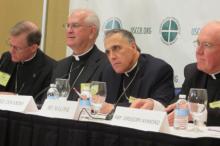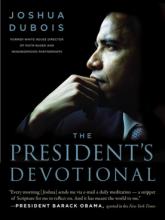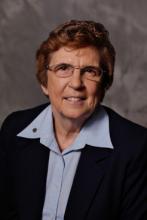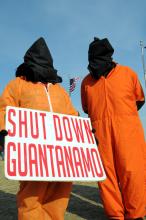Obama

President Obama’s “selfie” with prime ministers Helle Thorning Schmidt of Denmark and David Cameron of Great Britain has been making the rounds on social media. Many of Obama’s detractors have taken the opportunity to criticize the President’s picture taking prowess, bringing on “Selfie-Gate.” Take John Kass of the Chicago Tribune, for example:
First lady Michelle Obama sits off to the side, somber, dignified, as the world remembers Mandela. Yet next to her like some goofy adolescent who hasn't yet been taught how to behave properly at a memorial service — her husband — is snapping a memorial to himself.
Hold on a minute there, Kass, because South Africa is teaching us a thing or two about how they “behave properly at a memorial service.” Sure they mourn.
But they also dance.
From the video and images that I’ve seen, there was festive atmosphere at Mandela’s memorial service. This leads me to wonder what “proper behavior” at this memorial service looks like.

After a closed-door session at their annual meeting in Baltimore this month, the U.S. Catholic bishops issued an unusual "special message" reaffirming their long-standing opposition to the Obama administration’s birth control insurance mandate.
On one level, the declaration and the united front were no surprise: The American church hierarchy has made opposition to the mandate a hallmark of its public lobbying efforts, framing the issue as an unprecedented infringement of religious freedom.
Several bishops even vowed to go to jail rather than comply with the mandate. Others threatened to shutter the church’s infrastructure of hospitals, charitable ministries, schools, and universities rather than accept a policy that they say would force Catholic employers to provide health insurance that covers sterilization and perhaps abortion-inducing drugs as well as contraception.

For centuries, followers of Jesus have wondered how they should relate to states and governments. Recent documents from Amnesty International, Human Rights Watch, and the United Nations bring such concerns to the fore, highlighting the cruel collateral damage of many of President Barack Obama’s personally ordered drone strikes — strikes that according to the president, are legal and in accord with international law, use technology that is precise and limit unnecessary casualties, eliminate people that are real threats, and prevent greater violence.
Rather than considering the humanity of our (perceived) enemies and seeking reconciliation and restorative justice, we default to catching and killing. In doing so, we give the widest berth possible to Jesus's teachings and examples of self-sacrificial enemy love. In both Matthew 5 and Luke 6, Jesus tells us that to love our enemies is to be children of God, for radical love and kindness are his nature and his perfection. Loving enemies is essential to anyone who would claim God as his or her Father. Jesus said, "Love." Not, "Love unless you happen to be the ones in charge and in possession of firepower. In that case, kill the bastards."
We are charged with loving our world indiscriminately, self-sacrificially, and with great humility, and that should always inform our relationship with the state and government.
THE DAYS shorten and the scriptures get wild and woolly and Advent begins. Meanwhile, the secular holiday season builds in a frenzy of car commercials (does anyone really get a car for Christmas?), sale flyers, and often-forced cheer. Here are a few books—memoirs, spiritual writings, and art—that can be interesting, grounding, and inspiring companions for a complicated time of year. (They also are much easier to wrap than a car.)
Life stories
Good God, Lousy World, and Me: The Improbable Journey of a Human Rights Activist from Unbelief to Faith, by Holly Burkhalter. Convergent Books. Decades in political and human rights work convinced Holly Burkhalter that there couldn’t be a loving God—until she became a believer at age 52.
Hear Me, See Me: Incarcerated Women Write, edited by Marybeth Christie Redmond and Sarah W. Bartlett. Orbis. I was in prison, and you listened to my story. Moving works from inside a Vermont prison.
God on the Rocks: Distilling Religion, Savoring Faith, by Phil Madeira. Jericho Books. Nashville songwriter, producer, and musician Phil Madeira offers lyrical, wry observations on faith and life, from his evangelical roots to musing on a God who “knows she’s a mystery.”

Yes, President Obama said that if we like our health insurance, we can keep it.
Yes, that turned out to be false for a few million people.
Yes, the president chose his words poorly. Whether or not health reform became the law of the land, there’s no way any president could have known if we’d be able to keep our health insurance from one year to the next.

President Obama may not attend church most Sundays, but a new book reveals the Bible verses and prayers that he reads every morning.
The President’s Devotional, released Tuesday by Pentecostal minister turned political aide Joshua DuBois, is a compilation of 365 of the more than 1,500 meditations DuBois has sent the president since he started working for him in the U.S. Senate.
DuBois, who left his White House post in February, spent his weekends reading and praying over what he would send to Obama’s Blackberry the next week. He drew from the words of the Hebrew Bible and the New Testament, the songs of Nina Simone and Bob Dylan, and the activism of Fannie Lou Hamer and the Rev. Martin Luther King Jr.

Suzan Johnson Cook, the State Department’s ambassador-at-large for international religious freedom, will announce this week that she is resigning after 17 months on the job, according to two sources familiar with her office.
President Obama nominated the former Baptist minister to serve as his top adviser on protecting religious freedom around the world. When confirmed by the Senate in April 2011, she became the first woman and the first African-American in the position, which had been held by two people before her.
Obama had been criticized for taking too much time after his own swearing-in to nominate a religious freedom ambassador, a position created by the International Religious Freedom Act of 1998.

WASHINGTON — “All labor has dignity.” That’s what the Rev. Martin Luther King Jr. said 50 years ago, and it’s still as true today.
Yet too many working men and women are unable to live with dignity in a world where the fastest-growing jobs are the lowest-paying ones. Just and living wages are a moral imperative, and workers must earn enough to afford the basics for themselves and their families. That’s why we have come together to support those fighting for a living wage.
As it turns out, the largest low-wage job creator in the country isn’t Wal-Mart or McDonald’s — it’s Uncle Sam. Through federal contracts, loans, and leases, the federal government employs about 2 million low-wage workersacross the country — sewing military uniforms, cleaning the bathrooms at Washington’s Union Station, serving Big Macs at the Smithsonian’s National Air and Space Museum, and hauling federal loads on trucks. Too many of these workers can’t even afford rent and food, they work without any benefits, and often are forced to rely on economic safety net programs like food stamps, Medicaid, and Section 8 housing vouchers to meet their basic needs.
Making matters worse, many of these workers are not compensated for overtime work and are actually paidbelow minimum wage. It’s illegal, but it happens. As faith leaders, we have visited with many of these workers and have asked President Obama to meet with them too.
President Obama addressed the nation today regarding the George Zimmerman trial, giving his thoughts on the nation's response to the verdict and the state of racism in our society.
Folks understand the challenges that exist for African-American boys, but they get frustrated, I think, if they feel that there’s no context for it or — and that context is being denied. And — and that all contributes, I think, to a sense that if a white male teen was involved in the same kind of scenario, that, from top to bottom, both the outcome and the aftermath might have been different.
You can read the full transcript of his speech here.

The organization representing Catholic hospitals across the country says it no longer objects to the Obama administration’s mandate that all employees receive free birth control coverage.
The decision by the Catholic Health Association puts the hospitals at odds with the Catholic hierarchy, which last week rejected the White House’s final regulations on an issue that many church conservatives view as evidence of the administration’s hostility to Catholicism and religious freedom.
Sister Carol Keehan, head of the CHA, disagreed. “If you look at the final regulations it is very clear that we do not have to contract for, or pay for, or arrange for” contraception coverage, Keehan said in an interview on Tuesday.
“It was really important that this be workable from a legal and theological perspective,” she added. “That’s what we believe we have achieved.”

PUBLIC PRESSURE IS finally building on President Obama to fulfill his promise to close the Guantanamo prison, which still houses 166 miserable leftovers from the Bush-Cheney “war on terror.” That pressure is well-placed. Gitmo has been a disaster from the beginning. Christians and other people of faith must join in calling for its closure.
Detainees were originally shipped to Gitmo in the vain hope of avoiding the reach of the U.S. judiciary. In this sense Gitmo was conceived in Constitution-evading sin. The Supreme Court rejected the evasion in 2006, but the damage was already done.
Some of the detainees brought to Gitmo were tortured. This has been confirmed by numerous sources, including a leaked 2006 Red Cross report and the 577-page report of a bipartisan blue-ribbon detainee panel organized by The Constitution Project, on which I served.
More than half of the remaining detainees have been cleared for release, but for domestic and geopolitical reasons they continue to be held. More than 100 of them are currently on a hunger strike, with dozens being force-fed, a practice that violates both American Medical Association and World Medical Association standards and which our Detainee Task Force condemned unequivocally.
Some detainees cannot be tried because the evidence against them was obtained by brutal or torturous means and is tainted or would be embarrassing to the U.S. Others are slated for trials in novel military commissions whose legal problems are so severe that they have not proceeded. Civilian trials on U.S. soil were blocked in 2009 by a fearful, recalcitrant Congress. So 166 men are held in limbo indefinitely, without trial and without foreseeable prospect of release. This is unconstitutional and a violation of the most basic legal and human rights.
JEREMY SCAHILL SPENT years working out his notions of social justice in homeless shelters and conflict zones and among peace activists. In 2007, Scahill’s award-winning investigative reporting made waves when he published Blackwater: The Rise of the World's Most Powerful Mercenary Army, a comprehensive exposé on the secret role of private military contractors in the United States’ “war on terror,” which prompted several congressional inquiries. Scahill’s newest book, Dirty Wars: The World is a Battlefield, digs into the obscure underbelly of U.S. covert wars.
“In one of my trips to Yemen, I traveled in the south of the country where most of the U.S. drone strikes in Yemen have happened,” Scahill said during a recent visit to Sojourners’ Washington, D.C. office. “I was interviewing a number of tribal leaders. This guy from Shabwa province said to me, ‘[Americans] consider al Qaeda [to be] terrorism. We consider your drones [to be] terrorism.’ I heard that over and over in a variety of countries. ... Many people, in Yemen or in Somalia, would not be predisposed to think of al Qaeda as anything positive. Al Qaeda is a reviled organization in Yemen. ... But there are tribal leaders who are saying, ‘You know, you pushed us into a corner where our people are now sympathetic with al Qaeda.’ After years of traveling in these countries, I really believe that we’re creating more enemies than we’re killing.”
In some respects, drones are simply a new tool of old empire. Scahill’s book title, Dirty Wars (and film of the same name), is partly “a macabre tip-of-the-hat to the dirty wars in Central America, fueled by the United States ... targeting people who are insurgents and claiming they were communists. The new version of this is targeting people who are fighting us and claiming they’re al Qaeda.”
ON THE AFTERNOON of Dec. 14, President Obama stood in the White House press room, tears in his eyes, and spoke for many Americans who had watched the terrifying events unfolding in Newtown, Conn.
“I know there’s not a parent in America who doesn’t feel the same overwhelming grief that I do. The majority of those who died today were children: beautiful little kids between the ages of 5 and 10 years old,” he said. “They had their entire lives ahead of them—birthdays, graduations, weddings, kids of their own.”
A little more than a month later, on Jan. 23, a pilotless aircraft owned and operated by the United States and controlled remotely by an individual on U.S. soil launched a targeted attack on the riders of two motorcycles in Yemen. The attack missed its target. It hit the house of Abdu Mohammed al-Jarrah instead, killing several people—including al-Jarrah’s two children.
There was no press conference for the al-Jarrah children.
It was President Obama himself, in fact, after his inauguration in 2009, who authorized an expansion of the U.S. drone program launched under George W. Bush. The “Authorization for Use of Military Force,” passed shortly after Sept. 11, gives the president broad authority to use force against those involved in the 9/11 attacks or those who harbor them. Drones have become President Obama’s weapon of choice.

SOME CHRISTIANS seeking moral guidance about drone warfare find enough clear teaching in Jesus’ command to love our enemies and respond to conflict with principled, active nonviolence. Other Christian traditions, seeking to restrict and limit warfare, have developed principles of “just war,” which deem certain acts of war immoral and illegitimate. Targeted killings by drones, which have become key elements of the Obama administration’s counterterrorism strategy, fail the test of morality on a number of grounds:
1. Targeted assassinations outside of legally declared wars violate international law, which prohibits a country from carrying out military attacks in or against the territory of countries with which it is not at war. Drone attacks in Pakistan, Yemen, and Somalia violate this prohibition.
2. They violate the sovereignty of other countries. The government of Pakistan has repeatedly objected to drone strikes on its territory, calling them a “clear violation of our sovereignty and a violation of international law,” but its concerns have been repeatedly ignored.
3. There is little transparency or accountability. CIA drones are remotely controlled, primarily from Air Force bases in the United States, with no clear accountability, and with the targeting sometimes based on dubious intelligence.

PRESSURE IS BUILDING for the United States to become militarily involved in the Syrian civil war. The result would be further bloodshed and destruction for the people of Syria, the worsening of an already grave regional security crisis, and U.S. involvement in another Middle East war.
The Obama administration has apparently decided to provide arms to the rebels. Sen. John McCain and others in Congress are calling for a no-fly zone and air strikes against Syrian government targets. The increased hard line comes in response to allegations that Syrian government forces have used chemical weapons, crossing the “red line” President Obama warned against—although reports have surfaced that rebel forces also may have used chemical weapons.
Concerns about the use of chemical weapons are serious, but they are not a justification for military action that could drag U.S. forces into the deadly civil conflict. Bombing strikes would not be sufficient to neutralize Syria’s vast arsenal of chemical weapons, and they could cause chemical explosions that would release the deadly toxins we seek to contain.
For a military operation to achieve results, it would have to be a large-scale undertaking. Creating a humanitarian safe zone or attempting to impose a no-fly zone would require a major commitment of allied forces and would lead to serious military confrontation with hostile Syrian forces.

CLAREMONT, Calif. — Last Sunday, Timothy Murphy began a fast of solidarity with the Guantanamo inmates who are on a hunger strike to protest their indefinite detention. As one of our Ph.D. students and an ordained minister in the Christian Church (Disciples of Christ), Timothy felt spiritually called to the hunger strike. He is drinking water and nothing else.
Timothy intends to continue as long as he is able, or until the Obama administration begins taking action to address the prisoners’ legitimate grievances, including deliberate steps to find homes for the 86 prisoners who have been cleared for release. Timothy says he would be happy to stop the fast tomorrow if the administration indicated that it was taking steps to do this.
I, like Timothy, believe this is a basic human rights issue for the prisoners. I also believe that it is critical for the health of our nation’s collective soul and integrity to get it resolved. Timothy’s deep commitment inspired me, so I decided to join him, but in a more limited fast: I am fasting three days this week, and every Thursday hereafter, until steps are taken to resolve the Guantanamo issues.

Editor's Note: Below is the text of President Barack Obama's Proclamation for the National Day of Prayer.
Americans have long turned to prayer both in times of joy and times of sorrow. On their voyage to the New World, the earliest settlers prayed that they would "rejoice together, mourn together, labor, and suffer together, always having before our eyes our commission and community in the work." From that day forward, Americans have prayed as a means of uniting, guiding, and healing. In times of hardship and tragedy, and in periods of peace and prosperity, prayer has provided reassurance, sustenance, and affirmation of common purpose.
Prayer brings communities together and can be a wellspring of strength and support. In the aftermath of senseless acts of violence, the prayers of countless Americans signal to grieving families and a suffering community that they are not alone. Their pain is a shared pain, and their hope a shared hope. Regardless of religion or creed, Americans reflect on the sacredness of life and express their sympathy for the wounded, offering comfort and holding up a light in an hour of darkness.
General Motors signed the Climate Declaration. The statement is part of a new initiative by businesses for greater action on global warming in Washignton. No specific recommendations are made in the declaration. The Guardian reports:
"We want to be a change agent in the auto industry," Mike Robinson, GM vice-president of sustainability and global regulatory affairs, said in a statement.
Other endorsers of the Climate Declaration include eBay, Ceres, Starbucks, and Unilever.
The short statement, endorsed by GM, leads off: "Tacking climate change is America's greatest economic opportunity of the 21st century (and it's simply the right thing to do)."
Read more here.
President Obama broke his silence to comment on the current hunger strike of over 90 men at Guantanamo Bay. Time reports:
“It’s not sustainable,” President Obama said Tuesday, breaking his silence about the protest against his own government. “I mean, the notion that we’re going to continue to keep over 100 individuals in a no-man’s land in perpetuity.”
Obama repeated a position he has long held: The detention facility needs to be closed, with the prisoners either transferred to third countries if they do not present a threat or to the United States for adjudication. “This is a lingering, you know, problem that is not going to get better,” he said. “It’s going to get worse. It’s going to fester.”
The next steps at Guantanamo Bay are muddled in beaucracy. The President, Congress, and Secretary of Defense all have steps they must take before any real progress can be made.
Read more here.

Five men who know what it means to be president of the United States shared a stage in University Park, Texas. Then the incumbent among them flew to Waco, to mourn 11 first-responders, killed in a fertilizer plant explosion in the small town of West, Texas.
All presidents try to rewrite history to burnish their brief place in it. And in his new presidential library, George W. Bush will have his turn.
Barack Obama’s legacy is still a work in progress, though even sympathetic commentators are seeing him now, in his fifth year, as too slow to act, too cerebral to brawl, and too little respected by his political enemies.
In one role, however, Obama has excelled: “Mourner in Chief” — not one of his constitutional duties but oddly important.